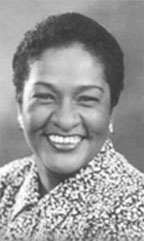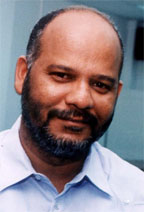A bill for assistance from other countries in crime matters will enable the government to seek information on the drug cases against Roger Khan, David Clarke and others, PNCR-1G MP Debra Backer asserted yesterday.

Her salvoes came as Parliament debated and passed the Mutual Assistance in Criminal Matters Bill 2009.
For the second time in more than 3½ years, the National Assembly unanimously passed a piece of legislation which seeks to make it easier for Guyana to get help from other Common-wealth territories in solving crimes.
The debate saw all the opposition parties attending; a rarity in recent times. An almost identical piece of legislation “The Mutual Assistance in Criminal Matters Bill No.4 of 2006, had been passed by the National Assembly in March of 2006 but had never been assented to by President Bharrat Jagdeo.
Last Thursday, Home Affairs Minister Clement Rohee unexpectedly tabled the Mutual Assistance in Criminal Matters Bill 2009 and the piece of legislation was slated to be debated at yesterday’s sitting. According to the explanatory memorandum of the bill, it “seeks to provide for mutual assistance in criminal matters between Guyana and Commonwealth countries or other countries with which Guyana has a treaty concerning such assistance”.
Rohee said the bill took cognizance of Guyana’s membership of the Commonwealth and stated that the country stood to benefit significantly from the passage of the piece of legislation. Rohee told the National Assembly that the bill is a far cry from the Extradition treaty which the country is party to, and said it does not facilitate the extradition of anyone. He said that unless a person requested by another territory agrees to go voluntarily to the country making the request, that person cannot be transferred.
The bill, provides for the local central authority to request a Commonwealth country to assist in “obtaining evidence or information believed to be obtainable in that country;” “locating or identifying a person or thing believed to be in that country;” and “obtaining, including by search and seizure if necessary, a thing believed to be in that country”. Rohee stressed that for this to be accomplished a process had to be followed.

He also stressed that “the bill does not derogate from other agreements or forms of co-operation, formal or informal, that this government has entered into in respect to criminal matters, for example with an enforcement agency such as Interpol.”
The Minister emphasized that confidentiality was an important part of the bill, which he said was necessary to ensure that the process is handled in a matter that does not interfere with the smooth transfer of the person or documents.
During his initial presentation, the Home Affairs Minister did not mention that a similar bill had already been passed by the National Assembly.
It was shadow Home Affairs Minister PNCR-1G MP Backer who pointed this out to the House and she criticized Rohee for not informing the National Assembly about this fact. “The Minister stands here and he wouldn’t even tell the young reporters, he wouldn’t even tell some of the members who were not here in 2006 that `look in the last Parliament this bill came and what happened…it was not assented to’”, she said. She also said that the Minister ought to have disclosed the reasons why the bill was not assented to after being passed.
She said that based on the Constitution, once the bill was sent to the President for his assent, he should signify whether he assents or withholds his assent. According to her, if the President exercises his right to withhold his assent, the Constitution requires him to return the Bill to the Speaker of the National Assembly within 21 days of the date when it is presented to him, along with a message stating the reasons for him withholding his assent. When Backer indirectly asked Speaker of the National Assembly Ralph Ramkarran if he had received such a response from the President, Ramkarran said his answer was already on the public record.
Backer said that while the party had supported the bill back in 2006, its main concern was that the bill “not gather dust” and be implemented quickly. She emphasized that while passing of legislation was good it was the implementation of the laws that is even more important.
Speaking specifically on the bill, Backer said that if clause 38 (1) (b) which proposes mutual assistance to any country that is a party to the United Nations Convention against Illicit Traffic in Narcotic Drugs and Psychotropic Substances 1988 was in place earlier, the law could have been used effectively. She said this clause would most likely include nations such as the USA, and that under this provision the government would have had no excuse for not asking the USA for assistance.
She said that once this bill is assented to, “the Minister will now be in a position to ask for information concerning Roger Khan, concerning Peter Morgan, concerning David Clarke and concerning several other people who we don’t necessarily need to go into…”
In spite of the concerns about “yet another constitutional breach by the government”, the PNCR-1G MP indicated her party’s support of the bill and urged that it be assented to speedily. She, however, voiced her concern that there was some underlying reason for the bill now being hastily brought before the House.
PPP/C MP Gail Teixeira responded to the statements raised by Backer. Teixeira emphasized that the legislation debated at yesterday’s sitting was not exactly the same as the one that was passed previously by the National Assembly. This argument was later developed by the Home Affairs Minister.
According to her, there were a number of bills which were debated before the National Assembly in the two months prior to May 2006, when the House was dissolved, due to the approaching National Elections. She said it normally takes “quite a while” for the final draft with all the amendments and corrections from legal personnel and Parliament to reach the President. According to her, by the time the bills reached the President in 2006, Parliament was no longer in session. She said that the President could not have indicated the reason for his lack of assent to the Speaker since the Parliament was no longer in session.
Teixeira also rebuffed suggestions that there were underlying reasons for the bill now being brought before the House. She, however, said that the country now was in a better position to implement the law than it was in 2006. She said that the bill provided the legal framework for the country to not only receive certain requests but also in being more forthright in making certain requests.
Meanwhile, addressing the whole issue of the implementation of new laws, Teixeira said that this was a challenge that was not unique to Guyana. She stressed that the implementation of these laws was a “process” and would take time.
Foreign Affairs Minister Carolyn Rodrigues-Birkett emphasized that the bill was important since it fostered greater co-operation with other countries in tackling the important issue of crime. According to her, this bill was just in keeping with other pieces of conventions that the country was already party to.
In wrapping up debate on the bill, Rohee opined that it was not really necessary for the Opposition to “engage in a song and dance” about the bill being around for a long time and about it not being assented to and implemented. He stressed that the most important aspects of the bill was that it was valid and relevant.
According to him, the bill seeks to establish consistency and synergy with other conventions that the government is party to. He said that whereas in the previous bill the Attorney General was the Central Authority, the Home Affairs Minister is the Central Authority in this bill. He said in retrospect that the government recognized some inconsistencies as Home Affairs was the central authority in a number of other pieces of legislations and conventions that the country is party to. He said this was necessary to avoid confusion and in order to better enable the country to fulfill its obligations.
The bill was later passed unanimously with minor amendments.
Second reading of the controversial Legal Practitioners (Amendment) Bill 2009 was deferred.




